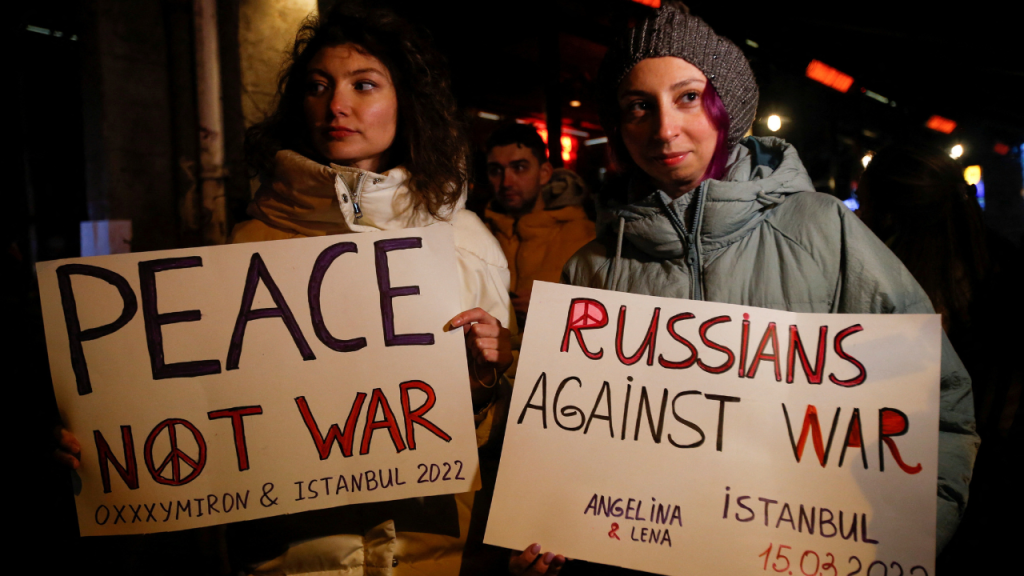Many Russians who initially sought refuge in Turkey amid the Ukraine war have since left due to challenges in obtaining residency permits and rising living costs. Turkey, initially a popular destination, saw a significant decline in Russian residents, with numbers dropping from 154,000 to 96,000. Difficulties in obtaining residency permits and Turkey’s economic challenges have driven Russians to countries like Serbia and Latin America. Tens of thousands of Russians who fled to Turkey after Moscow’s invasion of Ukraine have moved on to other countries in the last year, squeezed by residency issues and soaring costs.
When the war began in February 2022, Turkey emerged as a magnet for Russians, especially its largest city Istanbul and the Mediterranean resort of Antalya. Some Russians opposed the invasion, while others sought to protect themselves and their businesses from Western sanctions imposed on Moscow. Many feared being drafted into the army. However, the number of Russians with Turkish resident permits fell to 96,000, down by more than a third from 154,000 at the end of 2022. Difficulty in obtaining residence permits and soaring costs, including 70% inflation in Turkey, have led many Russians to leave the country for places like Serbia and Montenegro.
Some Russians have cited struggles in obtaining residency permits since early 2023 as a reason for leaving Turkey. For example, Dmitri, an IT sector employee, had his residency application rejected in January 2023 without explanation. He moved to Montenegro with his family, citing economic and political stability as reasons for leaving Turkey. Turkey’s Presidency of Migration Management stated that rejected resident-permit applications include justifications under relevant laws, and applicants are free to pursue legal remedies. Other factors such as political, economic, and sociocultural elements also play a role in Russians leaving Turkey.
While the Kremlin has not released data on the wartime exodus of Russians, some 800,000 Russian citizens relocated abroad since the invasion of Ukraine, according to the Danish Refugee Council’s Mixed Migration Centre. Turkey, maintaining visa-free travel for Russians and not joining Western sanctions against Russia, has seen a decline in Russian residents. The number of companies established with Russian capital in Turkey fell to 68 in 2023 from 140 in 2022. Many Russian migrants are moving to countries like Serbia, Montenegro, Argentina, and Brazil due to feeling economically, socially, and culturally close to Turkey, despite facing challenges in the country.
Some Russians, like Kirill Alekseev, chose not to reapply for a residence permit in Turkey due to the high cost. Instead, Alekseev applied for a German “humanitarian residence permit” and has lived in Nuremberg for a year. While some wealthier Russians have acquired Turkish citizenship through home purchases of at least $400,000, bureaucratic troubles have proven too burdensome for many. Eva Rapoport, who previously worked for the ‘Ark Project’ helping Russians in Istanbul, has also left Turkey due to uncertainties in obtaining permit extensions and concerns about human rights violations.
Overall, challenges in obtaining residency permits, soaring living costs, and bureaucratic hurdles have led many Russians who sought refuge in Turkey amid the Ukraine war to leave the country. Economic challenges, difficulties in basic banking due to sanctions, and political factors have contributed to their decision to move to countries like Serbia, Montenegro, and Latin America. Despite initially being a popular destination for Russians during the war, Turkey saw a decline in the number of Russian residents, with many facing uncertainties about their future in the country.













